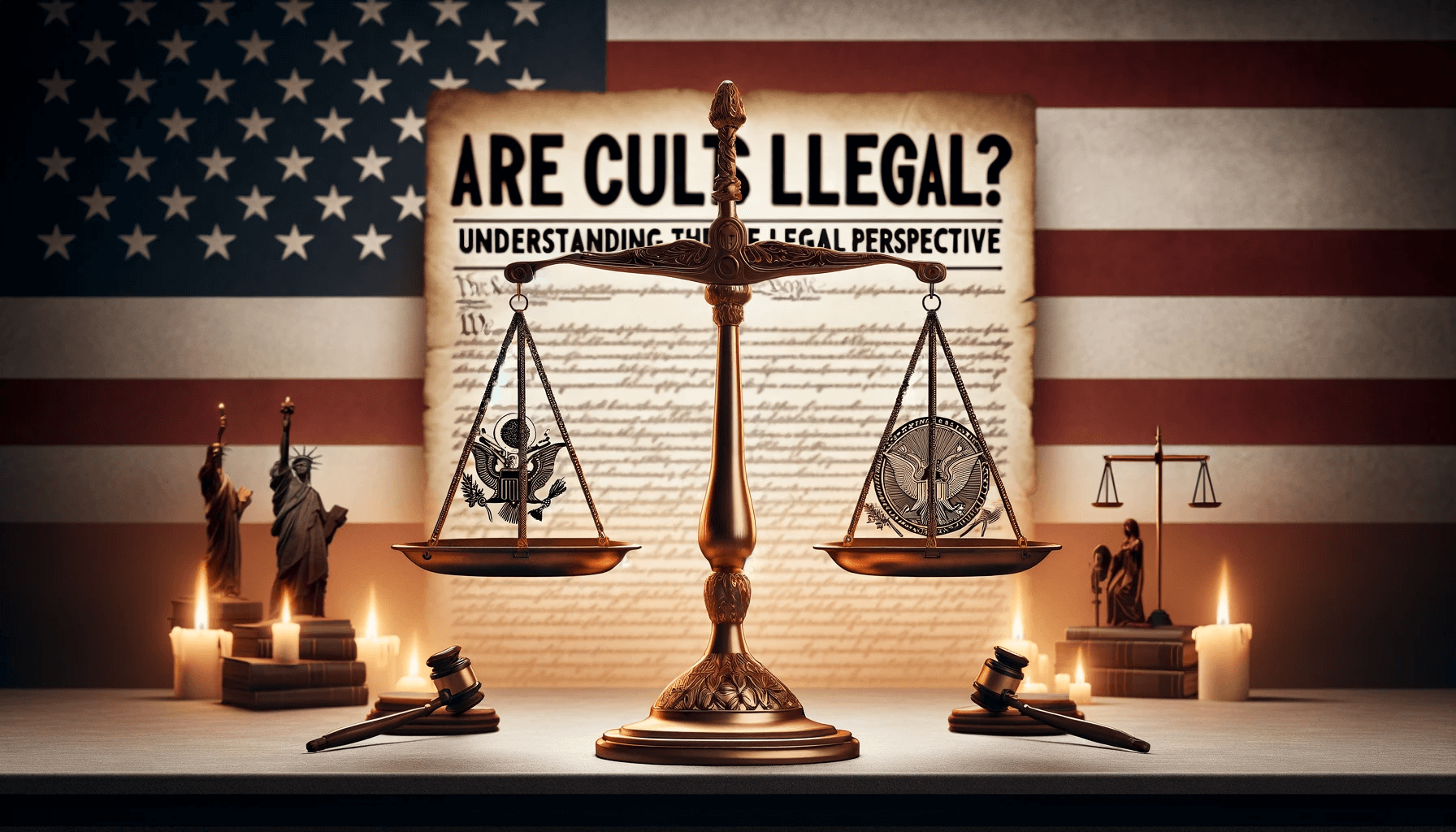The question of whether cults are illegal in the United States presents a complex legal dilemma that intersects with issues of religious freedom, free speech, and public safety. While the U.S. Constitution protects the freedom of religion and expression, certain activities associated with cults may cross legal boundaries, leading to criminal prosecution. This article explores the nuanced legal landscape surrounding cults, highlighting key legal principles and cases that illustrate when and how cult activities can become subject to legal action.
Freedom of Religion and Expression
The First Amendment to the United States Constitution provides robust protections for freedom of religion and speech, which are foundational to the legal treatment of religious groups, including those commonly labeled as cults.
First Amendment to the United States Constitution: “Congress shall make no law respecting an establishment of religion, or prohibiting the free exercise thereof; or abridging the freedom of speech…”
This amendment ensures that religious groups, regardless of their beliefs or practices, have the right to practice their faith free from government interference, as long as their activities do not violate laws applicable to all citizens.
Legal Boundaries and Cult Activities
While the freedom to believe is absolute, the freedom to act on those beliefs is not. Cults, like any other organizations or individuals, are subject to federal and state laws. Illegal activities that cults might engage in can include, but are not limited to, fraud, physical or sexual abuse, child endangerment, kidnapping, and manslaughter.
The legality of a cult’s activities depends on whether those activities break existing laws, not on the beliefs that motivate them. For instance, the government cannot prosecute a group simply for holding unconventional beliefs, but it can take legal action if the group’s practices harm its members or others.
Notable Legal Cases Involving Cults
Several high-profile cases highlight the legal system’s approach to dealing with cults involved in unlawful activities:
- The People’s Temple: Led by Jim Jones, the tragic mass suicide-murder in Jonestown, Guyana, in 1978, led to increased public and legal scrutiny of cults, although the legal actions were focused on investigating potential crimes leading up to the event.
- Branch Davidians: The 1993 siege in Waco, Texas, involved allegations of illegal weapons possession among other charges against the Branch Davidians, a religious sect led by David Koresh.
Challenges in Prosecution
Prosecuting cults presents unique challenges, including:
- Defining a Cult: There is no legal definition of a cult, which makes it difficult to categorize and regulate these groups without infringing on religious freedoms.
- Evidence Gathering: Cults often operate in secrecy, making it challenging for law enforcement to gather evidence of illegal activities.
- First Amendment Protections: Balancing the prosecution of crimes with the protection of constitutional rights is a delicate task that often complicates legal proceedings.
Conclusion
Cults, per se, are not illegal in the United States due to the constitutional protections of freedom of religion and expression. However, when a group’s activities violate the law, those actions can lead to legal consequences regardless of the group’s religious or cultural label. The American legal system continues to navigate the fine line between protecting individual liberties and preventing harm, ensuring that the focus remains on unlawful conduct rather than on belief systems.
References
- First Amendment to the United States Constitution: https://www.archives.gov/founding-docs/bill-of-rights-transcript
- Legal Challenges in Prosecuting Cults: https://www.americanbar.org/groups/criminal_justice/publications/









Leave a Reply